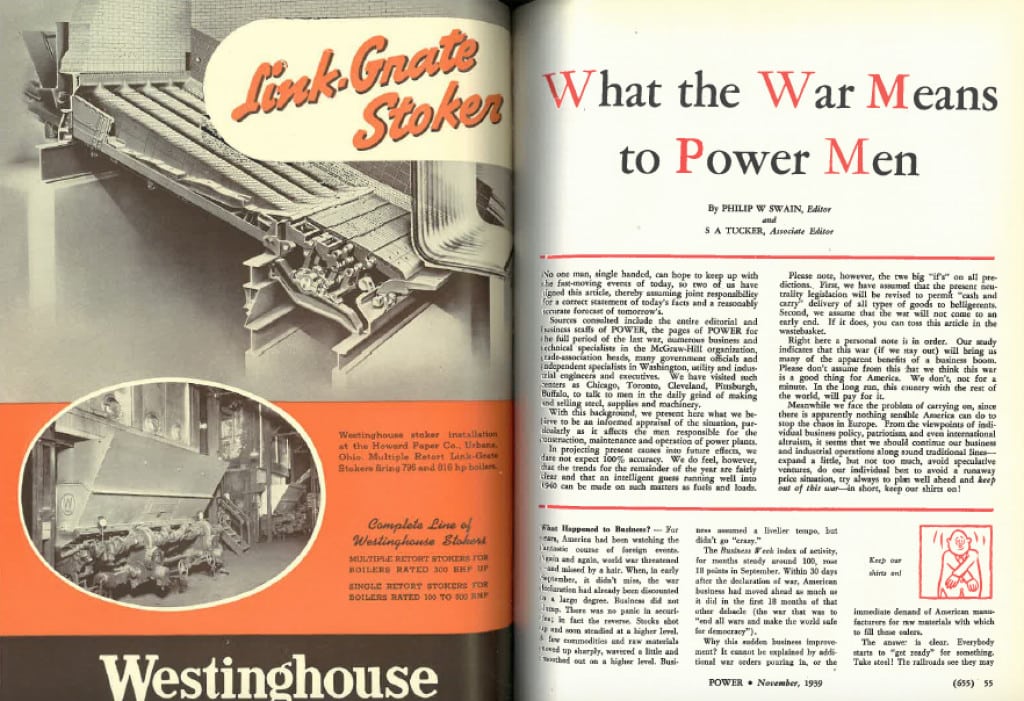From POWER’s Archives: On the Precipice of War
POWER magazine has been the voice of the industry for 135 years—and its rich archive is a rare chronicle of the uncertainties that the power sector has always faced.
In September 1939, two months before this piece was published, Nazi Germany invaded Poland, prompting the UK—and within hours—Australia, India, New Zealand, and France to declare war on Germany. World War II had begun.
Reluctant to be drawn into the conflict, the U.S. declared neutrality, but policy had already begun to slowly shift to non-belligerency as it provided more aid to the Allied Nations.
In November 1939, POWER’s Editor Philip Swain and Associate Editor S.A. Tucker published this extraordinary article about what a war could mean for the power business. “We present here what we believe to be an informed appraisal of the situation, particularly as it affects the men responsible for the construction, maintenance and operation of power plants.”
The piece goes on to note that several uncertainties could soften its predictions. One involved passage of the Neutrality Act of 1939, which allowed belligerents—countries involved in war—to purchase war material from the U.S., but only on a “cash and carry” basis. The law was part of a series of bills enacted in the 1930s to prevent the U.S. from being embroiled in a foreign war, but the 1939 measure lifted the arms embargo and allowed trade with belligerent countries so long as they paid for it immediately.
A second assumption was that the “war will not come to an early end,” the editors noted ominously.
“Our study indicates that this war (if we stay out) will bring us many of the apparent benefits of a business boom. Please don’t assume from this that we think this war is a good thing for America. We don’t, not for a minute. In the long run, this country with the rest of the world will pay for it.
“Meanwhile we face the problem of carrying on, since there is apparently nothing sensible America can do to stop the chaos in Europe. From the viewpoints of individual business policy, patriotism, and even international altruism, it seems that we should continue our business and industrial operations along sound traditional lines—expand a little, but not too much, avoid speculative ventures, do our individual best to avoid a runaway price situation, try always to plan well ahead and keep out of this war [their emphasis]—in short, keep our shirts on!”
—Sonal Patel is a POWER associate editor (@sonalcpatel, @POWERmagazine)
